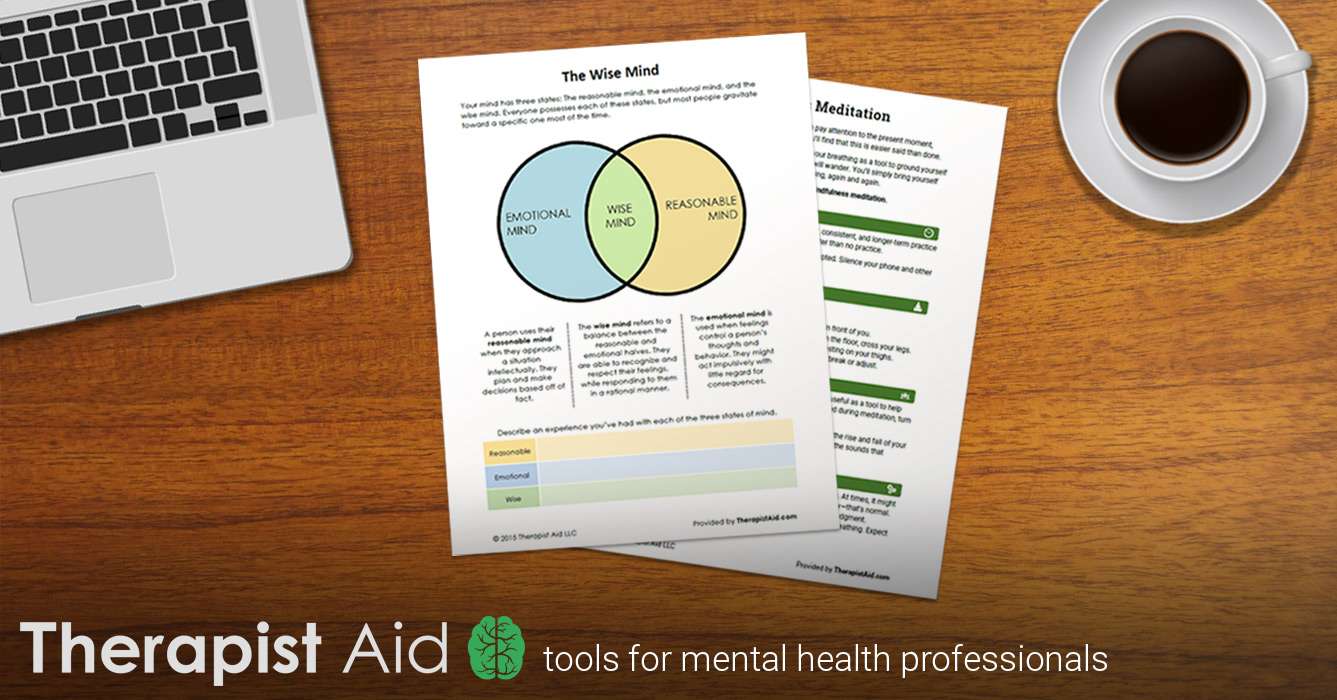Relational therapy stems from relational-cultural theory and the work of Jean Baker Miller in the 1970s and 1980s, which looked at human connection and the manner in which culture influences relationships. Miller was the founding director of the Jean Baker Miller Training Institute, part of the Stone Center for Developmental Services and Studies at the Wellesley Centers for Women. The center has focused on the well-being of women, children, and families.
Miller’s work centered on women, privilege, power, and the dominant and subordinate roles played out in relationships. At that time, there was a movement in the field of psychotherapy away from pure introspection and toward an exploration of the dynamics of human relationships and their effects on individuals. More focus was given to emotional difficulties, stress, and power differentials from past relationships and how they can interfere with true personal expression and the ability to form solid relationships in the present.
Relational therapy integrates cognitive-behavioral therapy, which is goal-oriented, focuses on faulty thinking, and promotes self-awareness and healthy behaviors. These principles are applied to your daily interactions with others. It also uses principles of other therapies like psychoanalytic and psychodynamic.
The relational-cultural theory focuses therapists and counselors on the cultures and contexts that affect relationships so they can work effectively with more diverse clients. The therapist addresses these difficulties within the context of the therapeutic relationship and the client’s relationships outside of therapy.
 Relational psychotherapy, an approach that can help individuals recognize the role relationships play in the shaping of daily experiences, attempts to help people understand patterns appearing in the thoughts and feelings they have toward themselves.
Relational psychotherapy, an approach that can help individuals recognize the role relationships play in the shaping of daily experiences, attempts to help people understand patterns appearing in the thoughts and feelings they have toward themselves.
Based on the idea that strong and fulfilling relationships with other individuals can help people maintain emotional well-being, this model may be beneficial to people seeking therapy for any number of reasons, but in particular to address long-term emotional distress, especially when distress occurs as a result of relational concerns.
History and Development
An integrative form of therapy, relational psychotherapy was born from a combination of several therapeutic theories and practices. Among these include self psychology, relational psychoanalysis, and feminist theories of psychotherapy. The work of Jean Baker Miller contributed a number of important ideas significant to the development of this approach. Other notable individuals who collaborated in the development of this approach include Janet Surrey, Judy Jordan, and Irene Stiver, who worked with the Jean Baker Miller Training Institute at Wellesley College.
In the 1980s a shift occurred in the practice of therapy, in that it moved away from simply exploring inner experiences (intrasubjective) and toward greater understanding of the impact of relationships on individual experiences (intersubjective). Since then, relational psychotherapy has expanded, growing to become a widely used theoretical base for many other forms of therapy that focus on a person’s relationships and the impact they can have on emotional and mental wellness.
Core Principles of Relational Psychotherapy
Relational psychotherapy is founded on the concept of relationships with others being an essential aspect of emotional well-being. Individuals who find it difficult to maintain supportive and healthy relationships may experience a sense of disconnection in addition to feelings of diminished self-worth and general distress, and their sense of emotional well-being may negatively affected.
The practice of relational psychotherapy adheres to the following principles:
- It is important for a person to maintain fulfilling and satisfying relationships with those around them in order to maintain emotional health.
- Stress and emotional upheaval are often the result of past relational experiences, and these concerns may inhibit the present self from full expression.
- The therapist administering relational psychotherapy provides an atmosphere of empathy and attentiveness in order to elicit full disclosure of the experiences and events affecting the person seeking treatment, as well as the effects they have had both relationally and socially.
- The therapist and the person in therapy work together to forge a strong, collaborative, and secure relationship that can serve as a model for future relationships the person wishes to develop. Other relationships can be measured against this supportive one to determine if they are constructive or destructive.
Find a Therapist
Advanced Search
How Does Relational Psychotherapy Work?
In general, relational psychotherapy sessions emphasize the development of relational awareness. To achieve this, the therapist and the person in therapy must typically gain an understanding of the individual’s strategies for disconnection. or the styles of interpersonal interaction that are used to push others away. Once they are identified, the therapist and individual can explore the potential reasons behind the use of these strategies. Transformation begins to occur when the therapist and individual build new relational images using the therapist-person in therapy relationship as a model for a secure and healthy relationship.
The primary goal of relational psychotherapy is to help those seeking help better understand how they operate in relation to others and how their relating patters can have an impact on mental and emotional well-being. Therapists can also help individuals better understand and take into consideration the effects of differences in power or equality as well as the impact of social issues such as class, race, gender, and culture.
Training and Certification
Relational psychotherapy trainings are offered through many therapist training programs and mental health centers. The American Psychological Association, for example, offers continuing education that focuses on relational psychotherapy. Other organizations offering training in the approach include the Toronto Institute for Relational Psychotherapy, which provides a comprehensive program in the use of relational psychotherapy, and the Jean Baker Miller Training Institute, which conducts research and offers workshops and professional trainings. When certain experiences, relationships, and/or beliefs are affecting a person’s ability to draw satisfaction and fulfillment from life, therapy can often help the person achieve insight and address the situation or relationship.
How Can Relational Psychotherapy Help?
Relational theory, which holds that the sense of connection healthy relationships provide is an essential aspect of human well-being, suggests that when this connection is absent, mental and emotional concerns can result. The primary goal of this therapy is to address these concerns and help those seeking treatment to become better able to develop supportive, lasting relationships. Mutual empathy and authenticity, as expressed through the therapeutic relationship, can help facilitate this goal.
When certain experiences, relationships, and/or beliefs are affecting a person’s ability to draw satisfaction and fulfillment from life, therapy can often help the person achieve insight and address the situation or relationship.
This approach largely helps individuals address the effects of relational challenges, such as family issues and intimate relationship difficulties, new life situations, or school and workplace issues. Relational psychotherapy may also be beneficial for those who find emotional regulation challenging, and it has also been shown to be helpful in the treatment of relational difficulties experienced with anxiety, stress, or depression.
Concerns and Limitations
While relational psychotherapy may be beneficial in the treatment of a range of concerns, this approach may not be recommended for individuals who have avoidant personality traits.
Further, the development of standardized training for students may be challenging, as this approach is largely based on theory rather than the use of specific techniques.
While a good professional relationship between the therapist and the person in treatment is an essential component of all forms of therapy, relational therapy emphasizes the therapist-person relationship as one that is supportive and collaborative. Thus, therapists who have been trained to be take a more neutral approach or to take on an expert role may have some difficulty in utilizing relational psychotherapy, as it places particular importance on the therapist’s responses and collaboration.
References:
- Duffey, T., & Somody, C. (2011). The role of relational-cultural theory in mental health counseling. Journal of Mental Health Counseling, 33(3), 223-242.
- Hinchman, M. (2015). Relational therapy. Retrieved from http://www.drhinchman.com/relational_therapy.htm
- Individual therapy. (n.d.). Retrieved from http://www.rta-stl.com/services/individual-therapy
- Jordan, J. V. (1995). A relational approach to psychotherapy. Women & Therapy, 16(4), 51-61.
- Paul, S., & Pelham, G. (1999). A relational approach to therapy. Integrative and Eclectic Counseling and Psychotherapy, 110-126.
- Relational Psychotherapy. (2015). Retrieved from http://www.tirp.ca/therapy.html
- Smith, R. (2016, March 24). Relational psychotherapy: Transforming your sense of self. Retrieved from http://smithpsychotherapyassociates.com/tag/relational-psychotherapy
- What is relational psychotherapy? (n.d.). Retrieved from http://www.pathway-therapy.com/?page_id=52
Relational Therapy Examples
Relational Therapy can be used to treat a variety of issues, from Generalized Anxiety Disorder and Depression to PTSD. Because of the primary emphasis on relationships, relational therapy will often include questions and discussions about a client’s previous and current relationships.
Relationship Instability & Insecure Attachment Styles
Relational Therapy helps the client learn about healthy boundaries and consistent, secure attachments to others through the therapeutic relationship. These teachings are observed in therapy and are also reinforced by the experience of developing a healthy and stable relationship with the therapist. By setting healthy standards that include consistent session start and end times, fees, and keeping professional boundaries, therapists help clients with insecure attachments learn to have healthy boundaries within their own relationships.10,11
Relational Therapy for Social Anxiety
The transparent nature of the therapeutic relationship in RT can assist individuals struggling with social anxiety. The therapeutic relationship provides predictable space for clients to learn how to authentically connect and relate to others. By using warmth, empathy, and non-judgmental approaches, relational therapists create a safe environment for clients to feel free to express themselves. The more they practice doing so in sessions, the more likely they will be able to do so in their personal relationships as well.
Relational Therapy for Mood Instability
Client’s are encouraged to act out difficult and intense emotions like rage in a Relational Therapy setting. This free emotional expression can be relieving and cathartic, and can also help provide an outlet for repressed emotions which can lead to mood swings.
Relational therapy for Trauma & PTSD
Trauma can create a loss of trust in others, which can be restored with empathy and careful pacing of treatment.6 The therapist can also use self-disclosure to gain trust, “reveal themselves,” and “think out loud.”12 RT would not be recommended as a first line of defense for PTSD, which is better treated with EMDR or EFT/Tapping, but it can be in used conjunction or immediately after more regimented approaches.
Relational Therapy for Addictions
The lack of close relationships or inability to maintain healthy relationships can lead individuals to seek out comfort in alcohol or illicit drugs, workaholic tendencies, over-exercise, or food addiction. A relational therapist can assist the individual struggling with addiction to uncover their painful relationship history and see how this relates to their addiction. Some addictive behavior may be dangerous and require immediate medical attention or intensive treatment programs. RT would not be an appropriate resource in these instances.
How to Find a Relational Therapist
A Relational Therapist may be trained at a post-graduate institute or in a clinic or professional training. The best way to find a Relational Therapist is to go directly to an institute such as Mitchell, Jean Baker Miller, or William Alanson White, which all specialize in RT. Another approach is to search specifically for Relational Therapy on an online directory. You can also review the therapist’s biography page to verify they currently provide RT. You do not need a special referral to see a Relational Therapist, but it is important to find someone who is a good match for your needs, which may require you to talk to several therapists.
Who Is Able to Offer Relational Therapy?
Relational therapy is practiced by licensed counselors, social workers psychologists, and other professionals providing professional counseling services. At a minimum, counselors obtain a graduate degree and go through an additional licensure process.
Aside from these requirements, there are no licenses or certifications required to apply this method, though years of experience and training are beneficial. Ideally, however, relational therapists have additionally obtained a minimum year long certification from a post-graduate Institute such as Mitchell Relational Center or William Alanson White.
Key Questions to Ask a Relational Therapist Before Beginning
Finding a counselor who is a good match is important, especially in relational therapy, where the entire treatment is centered around the bond between the therapist and client. Many counselors offer free consultations to potential new clients to answer questions and provide information that will help them make an informed choice.
Questions to ask a Relational therapist before starting include:
- What licenses and credentials do they have?
- How long have they been practicing relational therapy?
- What drew them to this approach? Why is RT effective, in their opinion?
- Who is their biggest influence in relational therapy and why?
- How do they apply the RT method?
- What is the evidence that RT is successful, either anecdotal or research based?
- What is the cost per session? Do they take insurance? What is the length of treatment?
How Much Does Relational Therapy Cost?
The typical cost of a Relational Psychotherapist would range from a small co-payment to $150-250 or more per session for those paying out of pocket. Insurance may approve coverage of these sessions for up to 1-2 times per week if your therapist is in-network. Even if they are out of network, some insurance plans provide partial reimbursement for services. If you are unsure about insurance coverage and costs, check with your provider about in-network and out of network coverage for behavioral health services.
What to Expect at Your First Appointment
Your first appointment with a Relational Therapist will typically involve a 60-minute intake session. In addition to the usual information gathering process, the therapist will probably ask questions about your childhood, family history, and current relationships. To a relational therapist, human connection and experience is relational by definition, making this information highly relevant to your treatment.13
Questions about your gender, cultural and racial background may also be asked.
Is Relational Therapy Effective?
It is difficult to prove the efficacy of relational therapy because much of the research is qualitative in nature. Also, relative to other types of therapy, relational therapy is less commonly used, and less research has been done to establish its efficacy with different populations. However, RT draws from several therapies that are evidence-based including psychoanalytic, person-centeredness, and attachment therapy. In addition, the primary focus on the therapeutic relationship also lends credibility to the therapy, as this is consistently found to be more important than the specific kind of therapy being used.
Risks & Critiques of Relational Therapy
Like any therapy, RT comes with an assumption of risks. Feeling exposed in the client chair may be a challenge enough for some, but in addition to the general risks in therapy, there are a few that are more specific to RT. The open-ended nature and lack of specificity can leave room for bias and loose interpretations over objectivity.
Another risk in RT is the use of the therapist’s discretionary use of self-disclosure, which can be harmful if not properly applied and can result in “boundary violations.”3 Under RT, analysts can openly discuss almost anything, including sexual countertransference which has clear potential to be traumatic for certain clients. Also, since RT is based on theory without much structure in technique, the development of standardized training for students and treatment protocol can be challenging.14
RT is not evidence-based and can not rapidly treat a mental health concern.15 RT is a long-term treatment where individuals must be stable enough to tolerate it for the duration without instantaneous relief. For this reason, RT may not be the ideal option to treat severe and acute-onset mental illness, where intensely symptomatic individuals need immediate stabilization. Treatments such as inpatient rehabilitation, day treatment programs and behavioral therapy (EMDR, EFT/Tapping, CBT, DBT, and brief Solution-Focused Therapy) might be better options.
Some critics feel that the Relational Therapist can get carried away in participating in the dyad. If focus is routinely shifted back to the manner of relating between the therapist and client, then the client’s individual needs and sense of self become overshadowed. While careful training should ensure this does not happen, it is a risk of the therapist participating in the treatment.3
How Is Relational Therapy Different Than Other Forms of Therapy?
Relational Therapy is most closely related to Classical Freudian Psychoanalysis from which it stemmed, but also attempts to distance itself from this theory by emphasizing relational aspects rather than instinctual drives. In Freudian therapy, dreams and the subconscious psyche are accessed to analyze, diagnosis, and treat the client.3 A relational therapist will interpret the client’s relatedness, communication, body language and social/environmental history to assess and treat.3
Relational Therapy mostly differs from it’s evidence-based short term counterparts, EMDR, CBT, DBT, which are 6-12 week behavioral treatments meant to target a specific behavior or trauma. There is usually a very specific syllabus with each session pre-determined and outlined, whereas RT is flexible and adaptive to the unique needs of each client.3 There is significantly less focus, if any, on the developing relationship between client and therapist. While these are vastly different approaches, all methods can lead to healing and sometimes can be used in conjunction with each other depending on the client’s needs.



